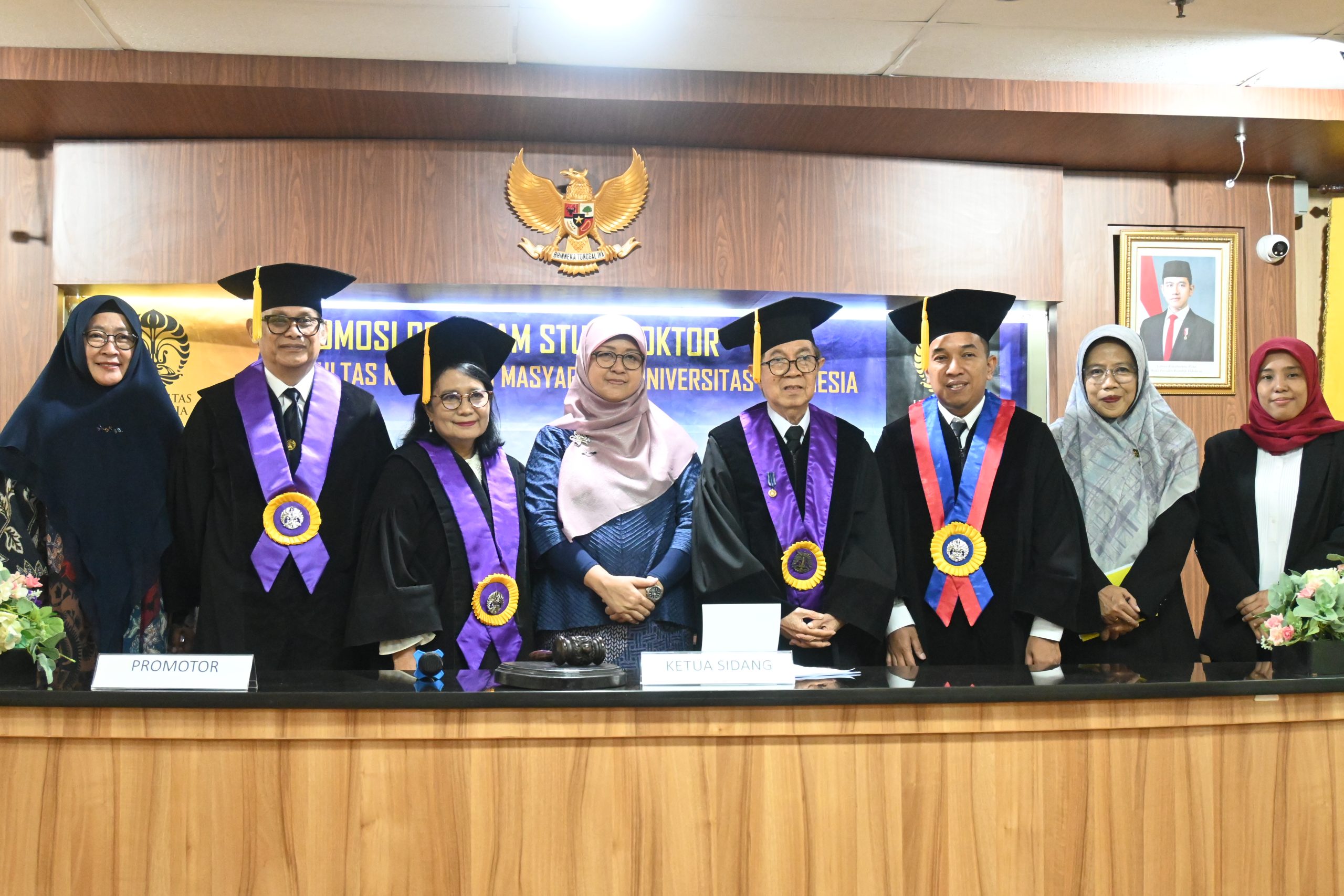Preeclampsia is one of the serious challenges in maternal and child health in Indonesia. The incidence rate is estimated to be between 3-10% nationwide. This condition is one of the leading causes of maternal mortality alongside hemorrhage and sepsis. A study conducted in 11 hospitals in Indonesia even recorded 42 cases of maternal death due to preeclampsia or eclampsia. Its impact is not only felt by the mother but also poses a high risk of morbidity to the newborn.
In response to this challenge, an innovative step was taken by Dwirani Amelia, a student in the Doctoral Program in Epidemiology with a focus on Clinical Epidemiology at the Faculty of Public Health (FPH) of the Universitas Indonesia (UI). On January 11, 2025, she successfully completed her doctoral promotion session with a dissertation titled “Predictive Modeling of Preeclampsia Incidence in Pregnant Women Using Machine Learning (ML).” The session was held at the FPH UI Doctoral Promotion Room in Building G.
Dwirani Amelia’s research aimed to develop a predictive model for preeclampsia using ML, leveraging data similar to what is available in primary healthcare facilities. The risk factors analyzed in this study included a history of diabetes mellitus (DM) and hypertension in the mother or her family, smoking history, primigravidity, mean arterial pressure (MAP), and body mass index (BMI) prior to pregnancy. In the modeling process, the candidate utilized several machine learning algorithms, such as support vector machine (SVM), decision tree, and K-Nearest Neighbor (KNN). “After evaluating the performance of various models—including logistic regression and random forest—the results showed that the SVM algorithm performed the best, especially after undersampling techniques were applied to address data imbalance,” explained Dwirani.
The developed SVM model achieved an accuracy of 70.31%, sensitivity of 67.5%, specificity of 57.23%, and an area under the curve (AUC) value of 0.68. This success was achieved through a combination of undersampling techniques on the data and hyperparameter tuning. These results mark an important step in utilizing machine learning technology to detect the risk of preeclampsia more effectively, especially in primary healthcare settings.
The predictive features used in this study included a history of hypertension and diabetes mellitus (DM) in the mother or her family, BMI before pregnancy, MAP, smoking history, and primigravidity. Although the SVM-based model has shown promising results, Dwirani’s research highlights the importance of adding new features that have a strong association with preeclampsia occurrence to improve the model’s sensitivity and specificity. This is especially relevant in efforts to achieve more accurate and effective early detection.
“In terms of implementation, utilizing this predictive model requires adequate data infrastructure. The Ministry of Health is expected to play an active role in strengthening health information systems at community health centers (puskesmas), including the management of integrated data,” said Dwirani. Through good data management, ML-based models like this can be adapted to support clinical decision-making at the primary care level, particularly in areas with limited health resources. The results of this study open up significant opportunities for further development, both in terms of model optimization and its application in the health system. Collaboration among academics, healthcare practitioners, and policymakers is crucial to ensuring the maximum benefit from this innovation.
Dwirani Amelia, a consultant at the Indonesian Ministry of Health since 2011, successfully completed her studies with impressive results. Based on the findings of her dissertation, Dwirani Amelia was declared to have passed with the “Very Satisfactory” distinction. With a cumulative GPA (IPK) of 3.89, she became the 8th graduate of the Epidemiology Doctoral Program at FPH UI in 2025, the 123rd graduate of the FPH UI Doctoral Program, and the 449th graduate of the FPH UI Doctoral Program overall.
Throughout her doctoral studies, which focused on applying machine learning technology for preeclampsia prediction, Dwirani Amelia received guidance from experts in the field. Her research was supervised by Prof. dr. Asri C. Adisasmita, M.P.H., M.Phill., Ph.D., with Co-Supervisors Prof. dr. Kemal N. Siregar, S.K.M., M.A., Ph.D., and Prof. dr. R. Detty Siti Nurdiati Z., M.P.H., Ph.D., Sp.OG(K). The promotion session was chaired by Prof. Dr. dr. Sudarto Ronoatmodjo, S.K.M., M.Sc., as the Chair of the Examining Committee, with committee members including Prof. Dr. dr. Dwiana Ocviyanti, Sp.OG(K), M.P.H.; Prof. Dr. Achmad Nizar Hidayanto, S.Kom., M.Kom.; Dr. Siti Nurul Qomariyah, Ph.D.; and Trisari Anggondowati, S.K.M., M.Epid., Ph.D. (DFD)

